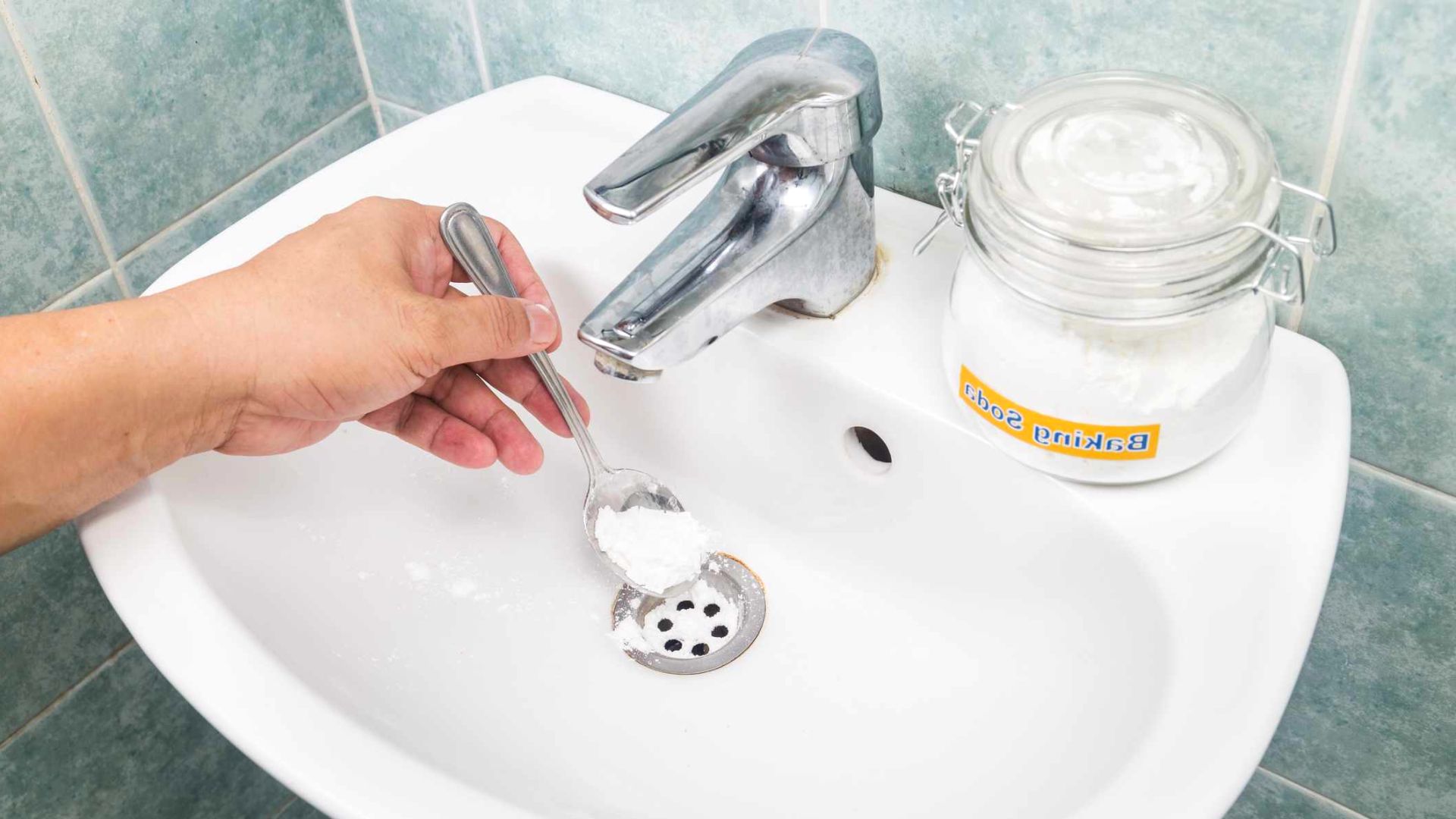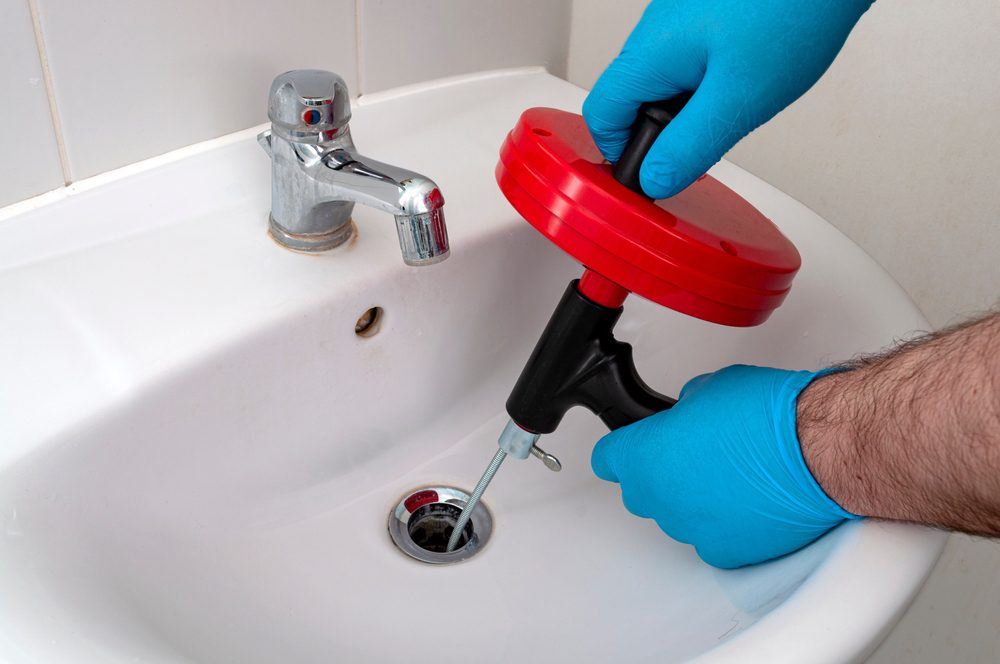Simple Methods To Resolve A Slow-Draining Sink
Simple Methods To Resolve A Slow-Draining Sink
Blog Article
What are your thoughts about Three Common Ways to Fix a Slow Drain?

Intro
We've all been there: You're cleaning your teeth or washing your hands, and you observe the water pooling in the sink. Rather than promptly swirling away, it remains, transforming your once-refreshing morning regimen into a miniature overload scene. A slow-draining sink isn't just irritating; it's often a sign of larger pipes issues lurking under the surface. The good news is that a lot of slow-draining sinks can be fixed with a little knowledge, a couple of standard tools, and some persistence. Ready to tackle this task head-on? Allow's roll up our sleeves and dive right in.
Recognizing the Sources Of a Slow-Draining Sink
Before you start poking around in your pipes, it helps to understand what may be creating the downturn. Understanding the origin makes it easier to choose the appropriate repair.
Common Perpetrators Behind Slow Drain
So, what's blocking points up? Normally, it's a mix of day-to-day debris-- believe hair, soap residue, toothpaste residue, and remaining food particles. With time, these tiny bits build up and cling to the pipe wall surfaces, progressively tightening the passage and making it harder for water to go through. Sometimes, natural resource from difficult water can additionally include in the gunk, producing the ideal tornado for stubborn clogs.
When is it Time to Do Something About It?
If you observe the water draining slower than usual, it's a great idea to step in sooner as opposed to later on. Waiting as well long could cause complete obstructions, undesirable smells, or even pipe damages. If the water takes more than a couple of secs to remove after turning off the faucet, consider it a red flag and prepare to place on your DIY hat.
Tools and Materials You'll Require
The right tools make all the difference. Luckily, you will not need a completely equipped plumbing's van to finish the job.
Crucial Devices for DIY Fixes
A plunger is your best beginning factor. A small, sink-sized bettor develops suction that can displace minor clogs. For even more consistent blockages, a drainpipe serpent (in some cases called a plumbing technician's auger) works marvels. A pair of gloves, a flashlight, and perhaps a set of protective safety glasses are additionally helpful.
Recommended Cleansing Solutions
Mild recipe soap and hot water can assist break down oily accumulation. A blend of cooking soft drink and vinegar is a tried and true natural home remedy, and chemical cleaners use a more green strategy. Maintain chemical drain cleansers as a last resource, as they can be severe on your pipelines.
Safety First: Preventative Measures and Preparations
Prior to you launch into unclogging setting, think about security. You're managing possibly dirty water and debris, so slip on a pair of handwear covers. If you're making use of chemical cleaners, guarantee the room is well-ventilated and adhere to the instructions on the label.
Protective Gear and Office Configuration
Lay down some old towels or dustcloths around the sink location to capture sprinkles. Clear away any kind of things that may enter your way, like soap dispensers or tooth brush holders. Make certain you have great illumination-- order a flashlight if needed.
Step-by-Step Overview to Taking Care Of a Slow-Draining Sink
Now, allow's enter into the nitty-gritty. This detailed process will lead you through basic techniques to restore your sink's water drainage.
Action 1: Remove and Clean the Stopper
Usually, the stopper (that small plug you push down to block water) is the initial wrongdoer. Remove it very carefully and wipe any hair or gunk trapped around its base. Rinse it completely prior to placing it back in position.
Action 2: Make Use Of a Bettor to Remove Debris
Got that bettor all set? Placement it over the drain and give it a few firm pumps. The concept is to produce suction that can loosen any kind of clog. If you see bits of particles floating up, you get on the best track.
Action 3: Try a Drain Serpent or Cable Hanger
If the bettor doesn't work, it's time to draw out the drain serpent. Carefully feed it into the drainpipe and spin as you go. You may really feel some resistance-- that's likely the blockage. Maintain twisting and drawing up until you get rid of the obstruction. If you do not have a drain snake, a corrected cable wall mount can operate in a pinch.
Step 4: Apply a DIY Drain Cleanser
A natural cleaner made from cooking soft drink and vinegar can break down recurring crud. Pour half a cup of cooking soft drink into the drain, complied with by half a mug of vinegar. Let it fizz for around 15 mins, after that flush with warm water. This chemical reaction usually does marvels for minor obstructions.
Tip 5: Reassemble and Examine the Sink
Placed everything back together and run the tap. Does the water currently swirl down the drain at a decent speed? If yes, give on your own a pat on the back. Otherwise, do not misery-- there are still a few even more dress up your sleeve.
Different Methods for Stubborn Clogs
Not all obstructions are created equivalent. If your sink still refuses to coordinate, consider these different remedies.
Sodium Bicarbonate and Vinegar Technique
We currently touched on this, yet it's worth keeping in mind once more. This gentle, eco-friendly approach is safer than chemical cleaners and frequently fairly effective.
Chemical Drain Cleansers
Enzyme-based cleansers use all-natural microorganisms to absorb raw material. They're an excellent selection if you're aiming to avoid extreme chemicals. Simply bear in mind, they may take a bit longer to function their magic.
Chemical Drain Cleaning Company: Advantages And Disadvantages
Chemical cleaners can blow up via challenging blockages quick, however they're not without disadvantages. They can produce heat and fumes, damages pipes if used exceedingly, and pose ecological dangers. Use them moderately, and always follow the instructions thoroughly.
Safety Nets to Keep Your Sink Flowing
Avoidance is the most effective cure. By taking on a couple of easy practices, you can maintain your sink from decreasing to begin with.
Regular Cleaning Up Behaviors
Clean down the sink container and fixture area consistently. Remove hair or food bits before they have a chance to wash down the drain.
Staying Clear Of Hazardous Substances Down the Drain
Think twice before discarding coffee premises, oil, or fibrous veggie scraps down the sink. These offenders cling to pipeline walls, developing blockages in time.
Routine Upkeep Checks
Schedule a fast monthly evaluation. Run hot water through the sink for a couple of mins, focusing on the flow. If it seems slow-moving, act quick prior to it ends up being a full-on obstruction.
When to Call an Expert Plumber
Often, no matter exactly how tough you attempt, that obstruct just will not move. That's when it's time to generate the pros.
Signs That Show an Extra Serious Concern
If your sink drains pipes gradually in spite of numerous attempts, or if you see water backing up in other components (like your shower or commode), you may have a much more serious plumbing concern lurking much deeper in the system.
Stabilizing DIY Efforts with Expert Help
While DIY can save you cash and provide a feeling of success, there's no embarassment in calling an expert. A professional plumbing technician can evaluate your entire pipes setup, making certain there's no underlying damages or long-lasting trouble that can cost you a lot more in the future.
Contrasting Expenses and Long-Term Solutions
Prior to making a decision, take into consideration the big picture. A cheap, quick fix might fix the trouble briefly, however investing in a much more irreversible remedy could save you cash and tension in the future.
Evaluating the Costs of Do It Yourself vs. Specialist Solutions
Do it yourself repairs often set you back little bit greater than the rate of a bettor or a container of cooking soft drink. Specialist solutions, on the other hand, featured a cost yet might prevent repeated problems and costly repair services later.
Buying Quality Fixtures and Upgrades
If your sink's style adds to frequent obstructions, it might be worth upgrading to higher-quality components or altering the plumbing format. Consider this an investment in your house's capability and comfort.
Final thought
A slow-draining sink can seem like a minor irritability, however it's frequently an indicator that your plumbing needs a little tender loving care. By understanding the source, using the right tools and methods, and devoting to simple preventive measures, you can maintain your sink streaming openly. And when all else falls short, never ever hesitate to employ a specialist-- your home's pipes deserves the financial investment in treatment and maintenance.
Three Common Ways to Fix a Slow Drain
Baking Soda Method
Boil a full pot of water. Measure out cup of baking soda and pour it down the drain. Then take cup of the magical cleansing substance known as white vinegar and drop that down there too. Allow the mixture to fizz in the drain for five minutes as the vinegar and baking soda combine. Now dump in that whole pot of boiling water. This combination of cleaning substances should clear out anything that is causing your sink to drain slowly. If it doesn t...
Zip-It
If the baking soda method doesn t clear out your drain, it may be because a significant amount of hair and/or other debris has collected there and you need to remove it. Purchase a Zip-It tool at any home improvement or hardware store and insert it into your drain. It will catch any collected hair or debris that s blocking the flow of water. Pull it out. If it s got a big clump of hair, etc. on the end, you ve probably got your culprit.
Drain Cleaner
If these methods don t work, there is the standard drain cleaner that you can also buy in a hardware store or even your local grocery store. It s better if you can use a household solution, but these drain cleaners often work in a pinch. They re very simple to use. You generally just dump them in your drain and wait. If even this method is not effective, it may be time to call the plumber.
https://www.mrrooter.com/oneida/about-us/blog/2017/july/three-common-ways-to-fix-a-slow-drain/

I am very eager about Solved! How to Fix a Slow Sink Drain and I hope you enjoyed reading our piece. For those who liked our blog entry plz be sure to share it. We recognize the value of reading our article about 7 Ways To Fix A Slow-Draining Sink Before You Call A Plumber.
Browse Our Site Report this page